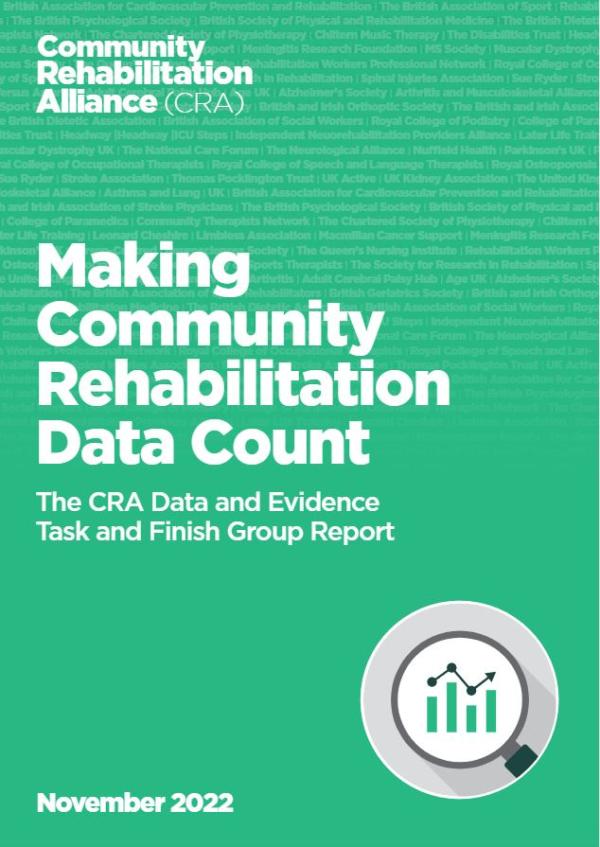The CSP, alongside more than 50 charities and professional health organisations is calling for a revamp of the way patient data is collected across England to improve rehabilitation services.

In its latest report: Making Community Rehabilitation Count, the Community Rehabilitation Alliance (CRA), of which the CSP plays a core role, makes a series of recommendations for NHS England, NHS Digital and digital healthcare leaders.
A key recommendation is for a single, centrally located database for community rehab services to be used. It should be safe, efficient and co-designed with stakeholders to reduce data entry duplication and foster data sharing, which will help with levelling-up health inequalities across the country.
CSP chief executive Karen Middleton said: 'What is counted is what often counts.
We’re proud to have funded this work, as part of the Community Rehabilitation Alliance – to show the importance of data in designing services that meet population needs.
'The CSP is deeply committed to leading the rehabilitation movement and will continue to work collaboratively with over 50 patient organisations and professional bodies to ensure rehabilitation is a key pillar of health.'
The Community Rehabilitation Alliance believes that centralising patient data collection is key to tackling health inequalities and will revolutionise under-resourced, over-subscribed acute, specialised and community rehabilitation services.
In 2021, the CRA set out to explore the challenges and opportunities around data use for community rehabilitation (rehab) to support service improvement and commissioning by surveying services. Key findings include:
- of 206 community rehabilitation organisation survey respondents, 83 (40 per cent) are not submitting data to databases
- 45 per cent of survey respondents reported duplicating data entry when submitting details to databases
- less than half (45 per cent) of organisations who submit data to databases always receive data analysis – limiting its usefulness
- data is not collected consistently and is not stored in one central place – making it challenging for services to access wider data and use it to benchmark and improve their services
- there is broad agreement about what an ideal core dataset for community rehab would look like
- community rehabilitation organisations want service level data for multiple purposes including clinical delivery, research, quality improvement, benchmarking, showcasing best practice, making business cases and workforce planning.
Find Out More
Number of subscribers: 2